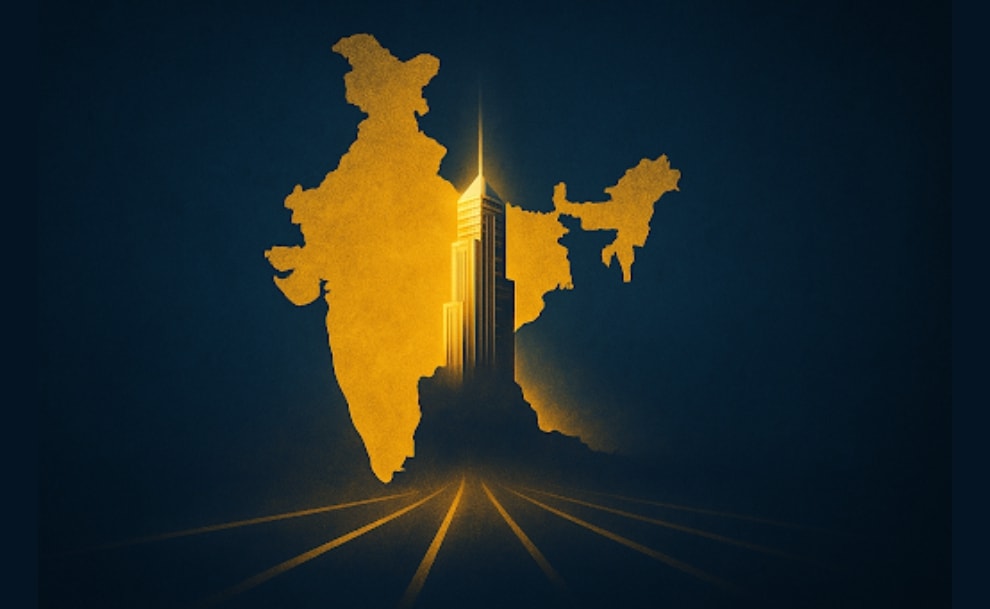Is India’s cautious diplomacy with the US strategic patience or a sign of weakness amid economic and geopolitical pressures?
Recap from Parts 1 & 2
The US has launched a comprehensive economic pressure campaign against India—50% tariffs on exports, a $100,000 H-1B visa fee, pharmaceutical tariffs, an ultimatum to cease Russian oil purchases and sanctions on Iran's Chabahar Port. Rather than retaliating, Modi's government has pursued asymmetric response the Production Linked Incentive scheme has transformed India from a net importer to exporter in pharmaceuticals, increased mobile device production by 146%, and generated ₹16.5 trillion in output. Simultaneously, India has diversified partnerships through agreements with UAE, Australia, UK, and the Eurasian Economic Union ($69 billion in bilateral trade), while maintaining firm diplomatic messaging on energy security. The question remains: is this strategic patience or the foundation for genuine independence?
The Long Game Assessment
President Trump's hints that the worst is yet to come if India doesn't fall in line reveal a fundamental misunderstanding of contemporary India. The country that once succumbed to economic pressure from international institutions in 1991 has evolved into a confident middle power with options. The coming years will test whether India's strategy of building capabilities rather than escalating tensions proves effective. History suggests that countries responding to pressure by building strength rather than engaging in reactive cycles often emerge more powerful.
Conclusion: Strength Through Strategic Architecture
The measure of leadership lies not in the volume of protests but in the effectiveness of strategy. Modi's approach to US economic pressure reflects the maturity of India's foreign policy establishment and an understanding that true power lies in creating alternatives rather than merely reacting to provocations.
Critics who mistake strategic patience for weakness fail to appreciate the complex game being played. India is not remaining silent out of fear; it is building capabilities that will make future coercion attempts less effective while maintaining dignified engagement that keeps diplomatic channels open.
The strongest response to economic pressure may indeed be the patient construction of alternatives that make such pressure irrelevant. This represents the true test of strategic leadership in an interconnected world—demonstrating that while India values partnership with the US, it will not compromise its core interests under external pressure.
The India-US relationship remains vital for both nations, but partnerships cannot be one-sided. Washington must learn that New Delhi's choices, especially in energy and trade, are guided by national interest—not external diktat. Modi's challenge is to continue this calibrated approach: cooperating where interests align while building the strength to resist when sovereignty is undermined.
PART 3: The Long Game
Recap from Parts 1 & 2
The US has launched a comprehensive economic pressure campaign against India—50% tariffs on exports, a $100,000 H-1B visa fee, pharmaceutical tariffs, an ultimatum to cease Russian oil purchases and sanctions on Iran's Chabahar Port. Rather than retaliating, Modi's government has pursued asymmetric response the Production Linked Incentive scheme has transformed India from a net importer to exporter in pharmaceuticals, increased mobile device production by 146%, and generated ₹16.5 trillion in output. Simultaneously, India has diversified partnerships through agreements with UAE, Australia, UK, and the Eurasian Economic Union ($69 billion in bilateral trade), while maintaining firm diplomatic messaging on energy security. The question remains: is this strategic patience or the foundation for genuine independence?
The Long Game Assessment
President Trump's hints that the worst is yet to come if India doesn't fall in line reveal a fundamental misunderstanding of contemporary India. The country that once succumbed to economic pressure from international institutions in 1991 has evolved into a confident middle power with options. The coming years will test whether India's strategy of building capabilities rather than escalating tensions proves effective. History suggests that countries responding to pressure by building strength rather than engaging in reactive cycles often emerge more powerful.
Conclusion: Strength Through Strategic Architecture
The measure of leadership lies not in the volume of protests but in the effectiveness of strategy. Modi's approach to US economic pressure reflects the maturity of India's foreign policy establishment and an understanding that true power lies in creating alternatives rather than merely reacting to provocations.
Critics who mistake strategic patience for weakness fail to appreciate the complex game being played. India is not remaining silent out of fear; it is building capabilities that will make future coercion attempts less effective while maintaining dignified engagement that keeps diplomatic channels open.
The strongest response to economic pressure may indeed be the patient construction of alternatives that make such pressure irrelevant. This represents the true test of strategic leadership in an interconnected world—demonstrating that while India values partnership with the US, it will not compromise its core interests under external pressure.
The India-US relationship remains vital for both nations, but partnerships cannot be one-sided. Washington must learn that New Delhi's choices, especially in energy and trade, are guided by national interest—not external diktat. Modi's challenge is to continue this calibrated approach: cooperating where interests align while building the strength to resist when sovereignty is undermined.
- Analysis of geopolitical and finance topics
